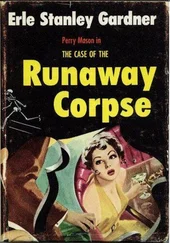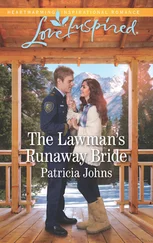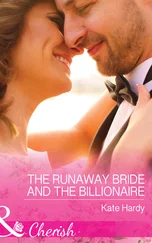John - The Runaway Jury
Здесь есть возможность читать онлайн «John - The Runaway Jury» весь текст электронной книги совершенно бесплатно (целиком полную версию без сокращений). В некоторых случаях можно слушать аудио, скачать через торрент в формате fb2 и присутствует краткое содержание. Жанр: Детектив, на английском языке. Описание произведения, (предисловие) а так же отзывы посетителей доступны на портале библиотеки ЛибКат.
- Название:The Runaway Jury
- Автор:
- Жанр:
- Год:неизвестен
- ISBN:нет данных
- Рейтинг книги:5 / 5. Голосов: 1
-
Избранное:Добавить в избранное
- Отзывы:
-
Ваша оценка:
- 100
- 1
- 2
- 3
- 4
- 5
The Runaway Jury: краткое содержание, описание и аннотация
Предлагаем к чтению аннотацию, описание, краткое содержание или предисловие (зависит от того, что написал сам автор книги «The Runaway Jury»). Если вы не нашли необходимую информацию о книге — напишите в комментариях, мы постараемся отыскать её.
The Runaway Jury — читать онлайн бесплатно полную книгу (весь текст) целиком
Ниже представлен текст книги, разбитый по страницам. Система сохранения места последней прочитанной страницы, позволяет с удобством читать онлайн бесплатно книгу «The Runaway Jury», без необходимости каждый раз заново искать на чём Вы остановились. Поставьте закладку, и сможете в любой момент перейти на страницу, на которой закончили чтение.
Интервал:
Закладка:
The six men on the jury, especially Jerry Fernandez, along with Shine Royce, the alternate, paid very close attention as she gently pulled the microphone close to her mouth. Red lipstick. Long red fingernails.
If they were expecting a bimbo they were quickly disappointed. Her husky voice detailed her education, background, training, field of expertise. She was a behavioral psychologist with her own firm in Tacoma. She'd written four books, published over three dozen articles, and Wendall Rohr had no objection when Cable moved to have Dr. McQuade declared as an expert.
She got right to the point. Advertising permeates our culture. Ads directed at one age group or one class of people quite naturally are heard and seen by those not in the target group. This cannot be prevented. Kids see tobacco ads because kids see newspapers and magazines and billboards and flashing neon lights in convenience store windows, but this doesn't mean the kids are targeted. Kids also see beer commercials on TV, commercials often made by their favorite sports heroes. Does this mean beer companies are subliminally trying to hook the next generation? Of course not. They're simply trying to sell more beer to their market. The kids just get in the way, but there's nothing that can be done about it short of banning all advertising for all offensive products. Cigarettes, beer, wine, liquor, what about coffee and tea and condoms, and butter? Do ads by credit card companies encourage people to spend more and save less? Dr. McQuade made the point repeatedly that in a society where free speech is a valued right, restrictions on advertising are carefully scrutinized.
Cigarette ads are no different from others. Their purpose is to reinforce a person's desire to buy and use the product. Good ads stimulate the natural response to rush out and purchase what's being advertised. Ineffective ads do not, and normally are quickly pulled. She used the example of McDonald's, a company she had studied, and she just happened to have a report handy in the event the jury wanted to peruse it. By the time a child is three, the child can hum, whistle, or sing whatever the current McDonald's jingle happens to be. The child's first trip to McDonald's is a momentous occasion. This is no accident. The corporation spends billions to hook children before its competitors do. American children consume more fat and cholesterol than the last generation. They eat more cheeseburgers, fries, and pizza, and drink more sodas and sugared fruit drinks. Do we charge McDonald's and Pizza Hut with devious advertising practices for targeting the young? Do we sue them because our kids are fatter?
No. We as consumers make informed choices about the foods we feed our children. No one can argue that we make the best choices.
And we as consumers make informed choices about smoking. We are bombarded with ads for thousands of products, and we respond to those ads which reinforce our needs and desires.
She crossed and recrossed her legs every twenty minutes or so, and each crossing was duly noted by the packs of lawyers around both tables and by the six male jurors and most of the females as well.
Dr. McQuade was pleasant to look at and easy to believe. Her testimony made perfect sense, and she connected with most of the jurors.
Rohr sparred with her politely for an hour on cross but didn't land a serious punch.
Thirty
According to Napier and Nitchman, Mr. Cristano at Justice desperately wanted a full report on what had happened last night when Hoppy met Millie for their latest personal visit. “Everything?” Hoppy asked. The three were huddled over a rickety table in a smoky diner, sipping boiled coffee from paper cups and waiting for greasy grilled cheese sandwiches.
“Skip the personal stuff,” Napier said, doubtful if there was much personal stuff to skip.
If they only knew, Hoppy thought, still quite proud of himself. “Well, I showed Millie the memo on Robilio,” he said, not knowing how much of the truth he should tell.
“And?”
“And, well, she read it.”
“Of course she read it. Then what did she do?” Napier asked.
“What was her response?” Nitchman asked.
Sure, he could lie and tell them she was stunned by the memo, believed every word of it, and couldn't wait to show it to her pals on the jury. That's what they wanted to hear. But Hoppy didn't know what to do. Lying could only make matters worse. “She didn't respond too well,” he said, then told them the truth.
When the sandwiches arrived, Nitchman left to call Mr. Cristano. Hoppy and Napier ate without looking at each other. Hoppy felt like such a failure. Surely he was one step closer to prison.
“When do you see her again?” asked Napier.
“Not sure. The Judge hasn't said yet. There's a chance the trial could be over this weekend.”
Nitchman returned and took his seat. “Mr. Cristano is on his way,” he said gravely, and Hoppy's stomach began to churn. “He'll be here late tonight and wants to meet with you first thing in the morning.”
“Sure.”
“He is not a happy man.”
“Neither am I.”
ROHR SPENT his lunch hour locked in his office with Cleve, doing the dirty work that had to be kept to themselves. Most of the other lawyers used runners like Cleve to spread cash and chase cases and perform dark little deeds not taught in law school, but none of them would ever admit to such unethical activity. Trial lawyers keep their runners to themselves.
Rohr had several choices. He could tell Cleve to tell Derrick Maples to get lost. He could pay Derrick Maples $25,000 in cash, and he could promise another $25,000 for each plaintiff's vote in the final verdict, assuming there would be at least nine. This would cost $225,000 at most, a sum Rohr was perfectly willing to pay. But he was extremely doubtful Angel Weese could deliver more than two votes-her own and maybe Loreen Duke's. She was not a leader. He could manipulate Derrick into approaching the lawyers for the defense, then try to catch them in bed together. This would probably result in Angel's getting removed, an event Rohr did not want.
Rohr could wire Cleve, capture incriminating statements from Derrick, then threaten the kid with criminal prosecution if he didn't lean on his girlfriend. This was risky, because the bribery plot had been hatched in Rohr's own office.
They covered each scenario with the seasoned judgment of men who'd done it before. A hybrid was developed.
“Here's what we'll do,” Rohr said. “We'll give him fifteen grand now, promise the other ten after the verdict, and we'll also get him on tape now. We'll mark some of the bills, set him up for later. We'll promise him twenty-five for the other votes, and if we get our verdict, then we'll screw him when he demands the rest. We'll have him on tape, and when he makes noise we'll threaten to call the FBI.”
“I like it,” Cleve said. “He gets his money, we get our verdict, he gets screwed. Sounds like justice to me.”
“Get yourself wired and get the cash. This needs to be done this afternoon.”
BUT DERRICK had other plans. They met in a lounge at the Resort Casino, a dark bar sadly filled with losers massaging their losses with cheap drinks while outside the sun was shining brightly and the temperature was inching toward seventy.
Derrick wasn't about to get a postverdict screwing. He wanted Angel's twenty-five thousand in cash, now, up front, and he also wanted a “deposit,” as he called it, for each of the other jurors. A preverdict deposit. In cash too, of course, something reasonable and fair, say, five thousand per juror. Cleve did the quick math, and got it wrong. Derrick was figuring on a unanimous verdict, so the deposit of five grand times eleven other jurors worked out nicely to fifty-five thousand dollars. Add Angel's, and all Derrick wanted was eighty thousand cash now.
Читать дальшеИнтервал:
Закладка:
Похожие книги на «The Runaway Jury»
Представляем Вашему вниманию похожие книги на «The Runaway Jury» списком для выбора. Мы отобрали схожую по названию и смыслу литературу в надежде предоставить читателям больше вариантов отыскать новые, интересные, ещё непрочитанные произведения.
Обсуждение, отзывы о книге «The Runaway Jury» и просто собственные мнения читателей. Оставьте ваши комментарии, напишите, что Вы думаете о произведении, его смысле или главных героях. Укажите что конкретно понравилось, а что нет, и почему Вы так считаете.












